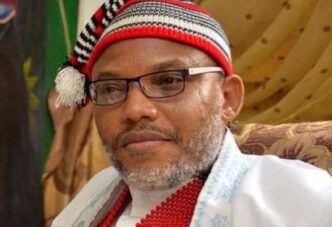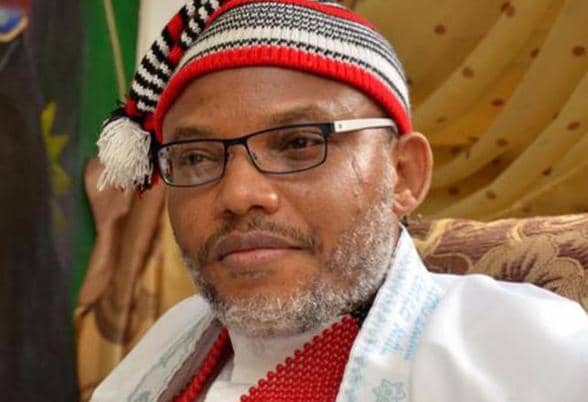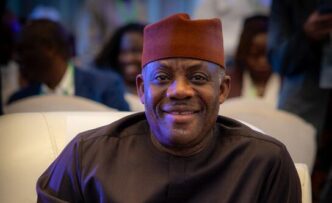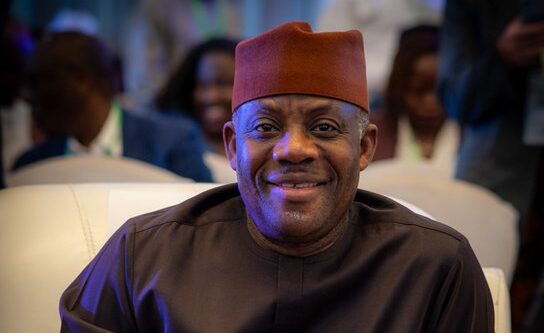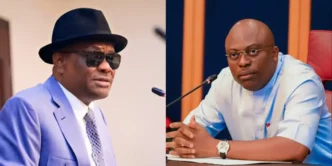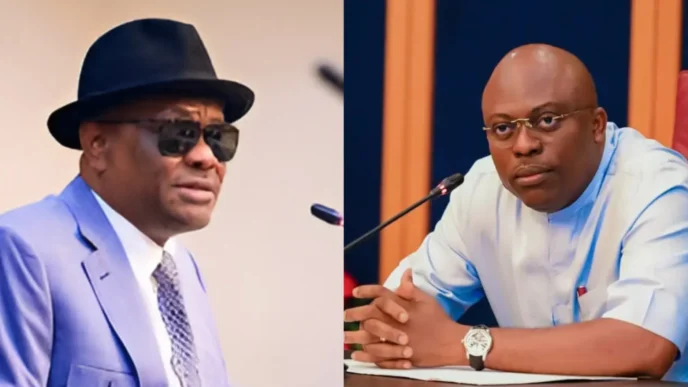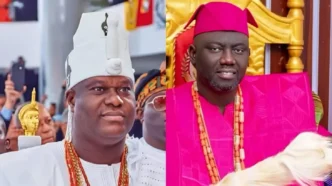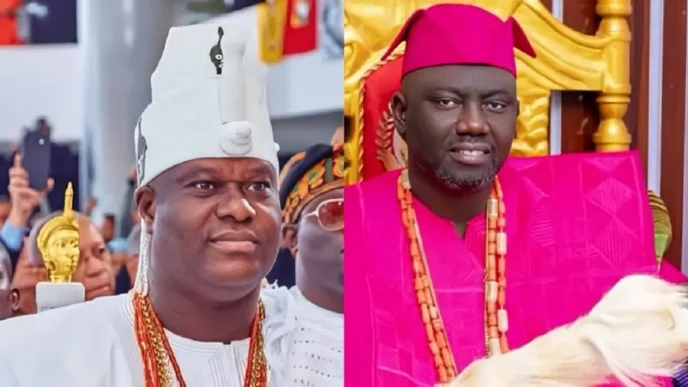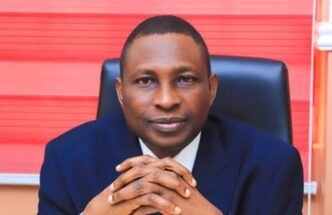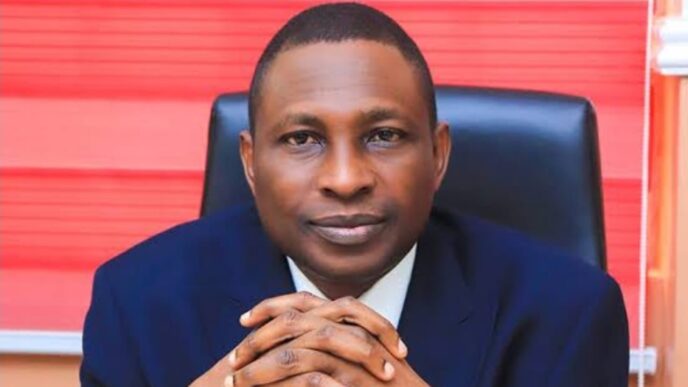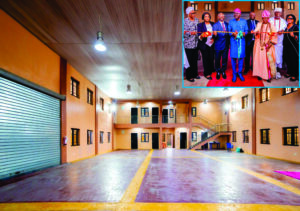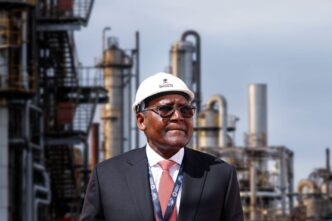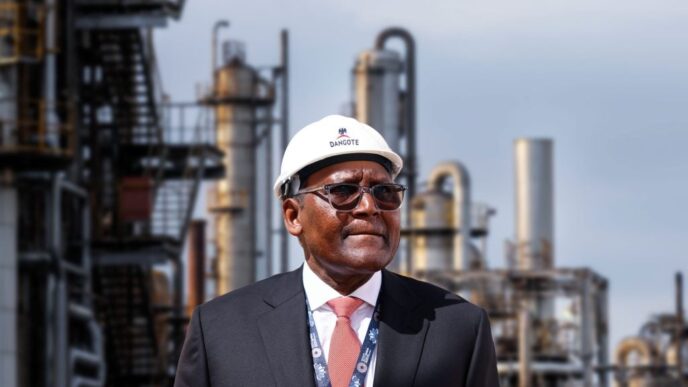The Federal Government has officially begun presenting its case against Nnamdi Kanu, leader of the Indigenous People of Biafra (IPOB), in a move that has stirred both national attention and legal debates.
The trial, which resumed on Tuesday at the Federal High Court in Abuja, opened with revelations about his 2015 arrest and his alleged involvement in operating the controversial Radio Biafra.
During the hearing, the first prosecution witness, identified only as AAA, gave his testimony behind a screen.
Justice James Omotosho had earlier approved the government’s application to conceal the identities of witnesses, citing national security concerns and the sensitive nature of the case.
AAA, a Department of State Services (DSS) officer with 18 years of experience, told the court that Kanu was arrested on October 14, 2015, at the Golden Tulip Hotel near Lagos International Airport.
According to the witness, “Kanu initially resisted arrest and even headbutted one of our officers.”
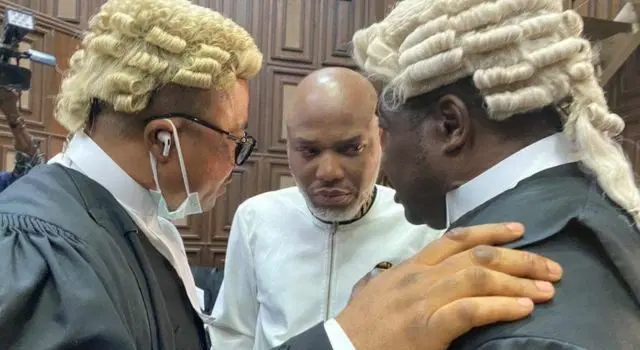
He went on to reveal that the arrest team had searched several rooms before finding Kanu in Room 303 with a young woman, identified as Maria Ibezimakor.
Furthermore, AAA said that broadcasting tools were discovered in the hotel room.
These, he claimed, were used to operate Radio Biafra without proper licensing in Nigeria.
The radio broadcasting equipment was reportedly taken to the DSS office in Lagos.
AAA added that Kanu “signed a document acknowledging ownership” of the items.
The following day, a recorded interrogation session was conducted and played in open court.
The video was admitted as evidence.
In the footage, Kanu openly admitted to founding and running Radio Biafra.
“I knew it was illegal, but I wouldn’t have been given a license even if I applied,” Kanu said.
He described himself as a freedom fighter, stating that his mission was to promote self-determination for the South-East, South-South, and Middle Belt regions.
“There is a right to self-determination under the United Nations Charter,” Kanu said.
However, he denied any link to violent acts or rebellion.
He also told the court that Radio Biafra had team members based in countries such as the United States, Russia, Italy, and Sweden.
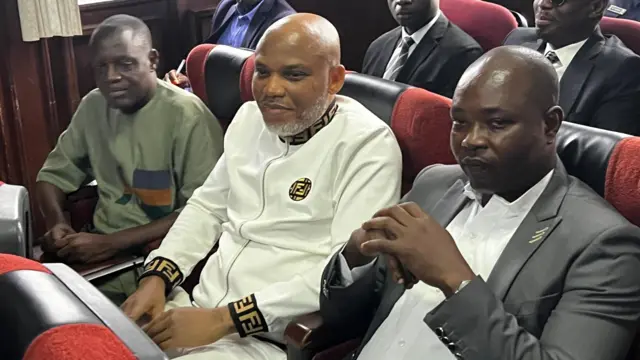
He claimed none of its team operated in Nigeria, but that volunteers within the country often shared the station’s content.
The prosecution believes that this testimony proves illegal broadcasting and a breach of national laws.
Meanwhile, the defence, led by Kanu Agabi (SAN), requested permission to expand their legal team from 13 to 22 lawyers.
However, Justice Omotosho denied the motion and maintained the earlier approved number.
Other defence lawyers present include Audu Nunghe, Joseph Akubo, Emeka Etiaba, and Onyechi Ikpeazu.
